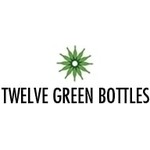Vegan Wines
Vegan wines? Isn't wine already vegan, after all, is it made from grapes?
Well, it's a bit more complicated than that! In the following blog you will discover how a wine can be vegan or not!
I'll look at, in simple terms, some of the processes involved in making wine, and then everything will become clear, hopefully!
First, the grapes are collected from the vineyard, classified, destemmed and crushed. The must is then separated from the solid remains of the grape by pressing, either before fermentation (for white wine) or after fermentation (for rosé or red).
Fermentation converts the sugar in the grape into alcohol, giving us wine.
This wine, however, is not the finished product. Before the wine is ready for sale, other processes are carried out. For example, most of us want a good clear wine without any obvious 'chunks' (such as grape skin or dead yeast cells), so they are removed by various methods, such as racking (which allows the sediment to sink to the bottom from the container, then the wine on top is pumped into a different container).
Another method of clarifying wine, which is widely used, is clarification, and it is this process that can make the wine vegan-friendly or not.
Clarifying agents remove turbidity and small pieces of skin, etc., which are suspended in the wine. Wine producers can choose from a range of clarifying agents, but they can be made from products of animal or mineral origin. Those of animal origin are generally egg whites, casein (a milk protein), gelatin or fishtail (from fish bladders) and obviously these would not be acceptable on a vegan diet. There are alternatives that come from mineral sources such as bentonite clay or activated carbon from coal, among others. Filtration can also be used, with or without clarification.
It can be argued that since the clarifying agents do not remain in the wine, but are washed away with the small particles that they are designed to attract, they are not an ingredient. This would make all the wines vegan!
However, it is true that clarifying agents touch the wine, so vegans who want to avoid these types of wines need to know which ones are available to them. Unfortunately, many producers, especially in Europe, do not label their wines as vegan-friendly, so while many wines on the shelves are vegan-friendly, it can be difficult to know which one!
With a growing awareness of different lifestyles, it is becoming easier to find wines that suit all sorts of criteria, such as vegan, low sulfite / sulfite free, organic and biodynamic. Naturally, if you are taking the time to find the right wine for you, chances are you are getting a better quality wine than one that is pulled off the shelf without much thought. So raise a glass for something different!
Enter the website and get information about all the wines, maybe you will find one of your liking to enjoy, why not try a vegan one? Twelve Green Bottles awaits you.


